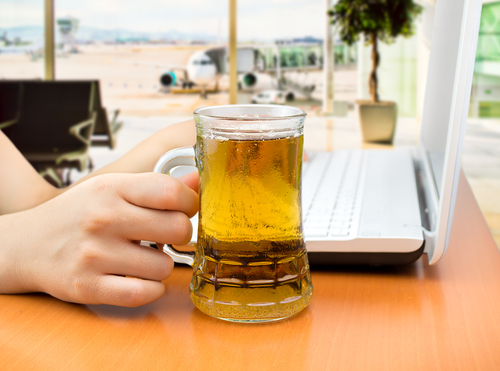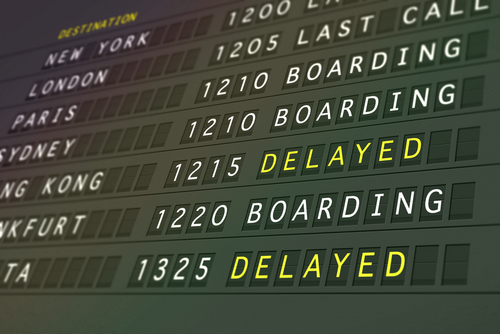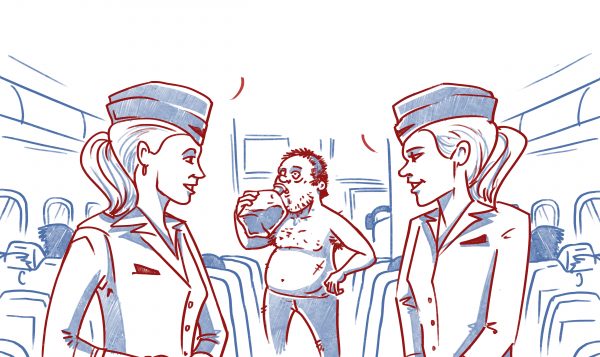Plane journeys are being disrupted by raucous passengers on what seems to be an ever-increasing basis, and alcohol is regularly at the centre of the problem. Much of the blame has been placed on the served quantities of alcohol at airports. Many airlines have also come under scrutiny for the easy accessibility of booze, and last year Jet2 responded to criticism by banning the sale of alcohol on all early morning flights. However, many feel it is not enough and are calling for a complete embargo in airports and on flights. In a recent incident, an intoxicated woman held up a journey after physically assaulting a fellow passenger on a 10am flight from Newcastle to Alicante, just one of many similar cases occurring more frequently.
Alcohol can help to ease nerves about flying, or it can simply be enjoyed as a pre-holiday ritual. However, what can be a comfort for many can become a nightmare for some unfortunate travelers. In fact, reports conducted by Panorama show that the number of alcohol-related arrests in UK airports has risen by over 50% in just one year. Statistics also show that the destinations bearing the brunt of these incidents are predominately in Spain and its surrounding islands. This has led to the government of the Balearics calling on the EU to ban the hard stuff on all flights. Although a significant rise in arrests has been undeniable, the figure is still a miniscule proportion of the overall number of travelers, many of whom also enjoy a drink before a flight. It seems somewhat inevitable that more measures will be implemented to stop this already sizeable problem from escalating further, but a complete ban does not seem likely, or fair for those drinking sensibly. So what possible solutions could be put into action?

One potentially more achievable way to reduce these figures is to set a limit on the number of drinks sold per person. A two drink limit, for example, would allow travelers to sensibly have a drink while limiting the possibility of getting out of control. Along with the service at the bar, some serious questions need to be asked about the servings at duty free. All sized bottles of spirits, including miniature vodkas, are sold here. Products that would be difficult to find on a high street are ostensibly reasonable in airports. Although drinking your own booze on flights is officially prohibited, that doesn’t seem to stop people from trying; there are many cases of problems occurring after sneaking in the duty free stuff. In fact, earlier this year, in a separate case of another flight from Newcastle to Alicante, a woman was removed from the plane after being caught attempting to pour her own vodka into an airline provided orange juice, where she was then even refused boarding on her return flight.

It is slightly hypocritical of the airlines to deny the duty free booze but happily serve their own, but at least there is more control over the passengers this way. However, by selling the small size duty free bottles, airports almost appear to willfully encourage binge drinking, which encapsulates the problems faced and the need for a systematic change across airports. Banning the sale of miniature sized bottles could be a move in the right direction, but given the profitable nature of the duty free, it may be a tricky process to initiate. It also seems increasingly likely that more airlines will join Jet2 in banning early morning servings as governmental pressure increases. If you are planning on going on holiday in the next year, the chances of someone under the influence of alcohol directly affecting your journey are increasing all the time.



Comments are closed.